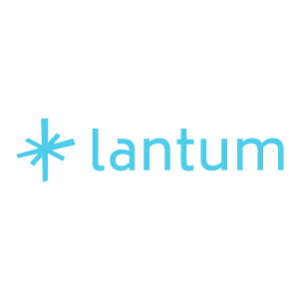Aiming to save the NHS £1bn a year in staffing agency fees
When Lantum founder Melissa Morris worked in healthcare consultancy for McKinsey, she was amazed to learn that the NHS was spending £3.5 billion each year on recruitment and staffing agencies. She soon realised that a tech-driven approach had the potential to save the health system huge amounts of inefficient agency costs.
So, in 2010, Morris started working for the NHS as part of her quest to find ways to reduce the amount of money spent on hiring medical staff. “I wanted to see how it all worked, how the money flowed, how procurement worked and who the decision makers were,” she says.
The time spent amassing vital evidence for her business was invaluable. And despite some people saying the idea would never work, she embarked on setting up Lantum.
A mission that blends technology and service
Lantum combines a software-driven business model with a service offering. “We provide a total workforce solution, helping healthcare providers to manage their current staff as well as introduce them to a wider network, while also providing tools for locum doctors to manage their admin and find local work opportunities,” Morris explains.
“There are a lot of different parts of the offering but, when they all link up together, it works really well,” she says.
Morris acknowledges the acute need to streamline the staffing process in the NHS. Compared with other countries, the UK faces sizeable staffing shortages. And the Brexit process is likely to exacerbate the NHS’s ability to attract international staff.
“If people think we have problems now, they have no idea about how bad recruitment in the NHS will get after Brexit,” she says. What Lantum is doing is playing a part in helping to “radically improve how the system operates”.
You can’t just attract new staff to join the workforce when you are not optimising what you already have.
Melissa Morris, Lantum
Fixing the supply and demand imbalance
In a resource-challenged organisation like the NHS, the need to communicate with your staff is crucial. But, without clear visibility and focus, untargeted email recruitment processes can go unread and end up being a waste of valuable resources and time.
“You need a much better way to connect with people and to see when they are available,” says Morris. Supply can’t be easily fixed either, given the very long training periods GPs in the UK have to undertake.
“You can’t just attract new staff to join the workforce when you are not optimising what you already have,” she says. So it all comes down to accessing the existing base of medical staff much more efficiently.
The biggest users of the Lantum product are large healthcare organisations, because they have a greater concentration of need. “If you have thousands of shifts to fill every month, you are going to need more demand than just filling one shift every month,” explains Morris.
For small GP practices that don’t have the benefit of operating to scale, Lantum has created an outscale package that allows them to share their staffing needs.
How to scale at a pace
Morris says that there are two main elements of growing quickly: financial capital and using skill. She explains that it’s not just about finances, but what you do with the money and how you get your return on investment.
“For example, if I have £2m to invest and I use that to hire a bunch of mid-level sales people, that’s not the best return on investment,” she says. “I would rather invest in two really expert sales people and achieve much better results.”
Lantum has embraced equity funding to grow. The company has completed a £1m family-and-friends round, a £2m institutional round arranged by Penta Capital, and recently a £2.2m equity round. The funding has helped Lantum to acquire two businesses to scale operations.
“I think people recognise that it takes time to build a really great business, specifically in healthcare. Our investors have a long-time view,” says Morris.
Morris explains that Lantum plans to use venture capital to grow, as it’s the “most appropriate, because we have aggressive growth plans”. While Lantum has used venture debt, invoice discounting and convertible loan notes too, some finance options can be limiting for young, fast-growth companies.
“Venture debt, for example, can come with covenants attached, which can harm you if you breach them or miss forecasts,” says Morris.
Valuing great human capital
Lantum’s team has grown to 50 people, including three team members in the HR and talent team – one who attracts new people, one HR manager, and one for the people who head up the whole function.
“Some people think that having three people in HR is a lot, but I think that it’s really worth investing in them,” says Morris. “On a very regular basis we look at every single person on the team and how we are going to develop them. And we do it on an individual basis.”

